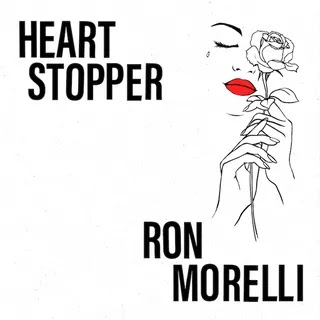The London-based producer’s nostalgic, two-track EP is a love letter to classic house and the tender, unspoken, human connection found on a dance floor.
Jayda Guy makes intimate club music that asks big questions. Her 2019 debut album, Significant Changes–a product of the years she spent earning her graduate degree in environmental toxicology while establishing herself as a sought-after DJ in Berlin–explored the ways that humans interact with the world around them. Through delightfully peculiar field recordings (crying orca whales, a lecturing biologist) and heady incantations (“This floor is for grooving!” she howled at clubgoers caught scrolling Instagram), the Canadian-born, London-based producer called on us to view both the earth and the club as sacred spaces worthy of preserving.
Her sensual follow-up EP, the two-track Both of Us/Are U Down, is a more emotional inquiry, and one that seems less interested in real answers. Instead, each track simply considers a state of mind––one is yearning and romantic, the other anxious and contemplative––and studies them in the context of blissed-out house. Both songs are steeped in uncertainty; on “Both f Us,” she wonders out loud if she has enough love to compensate for all that’s missing in her life, and on “Are U Down,” she gets stuck in a spiral of doubt and indecision. There is something about the fragility of each of these narratives––their unreliable structures, irresolution, and nagging loops of logic (“I can/I can/I can’t,” she sings)–that feels refreshingly human. If dance floors are sanctums for self-acceptance, shouldn’t our imperfections come with us, too?
Guy turned to early Chicago house records for inspiration, and you can hear the soulful, jazzy touch of producers like Mr. Fingers and Marshall Jefferson, two of the scene’s forebears who used the voice as a textural instrument to bridge the gap between gospel and disco. By chopping it up and weaving it alongside hissing hi-hats, synth vamps, kick drums, and uplifting piano––the bedrock of many classic house tunes––they discovered that vocals could sound at once orgasmic and spiritual. (Here, halfway through Guy’s nostalgic “Sunset Bliss” remix, she cues a joyful, euphoric breakdown in which she sends her voice soaring into a flurry of sky-high howls and sighs.) The sound from this particular era has recently made its way back into mainstream popularity, with mega-club DJs like Calvin Harris, Kygo, and Martin Solveig releasing their own glossy takes. But there is a tenderness and intimacy to Guy’s approach that sets her apart. She sounds shy, bashful, and way up close, like you’re eavesdropping on a personal phone call. At certain moments, it sounds like she’s breathing right into your ear.
That sense of immediate proximity is present all over Guy’s work, but in the context of the current moment it feels like a plea for human connection–that implicit, physical bond that can only be found on a dance floor. Imagine how a sea of sweating bodies would react to the dramatic third act of “Both of Us,” when the beat slows down and the drums drop out leaving just her, hand claps, and piano. It’s a pause that feels custom-made for when the DJ suddenly hits the floodlights and encourages you to take in everyone who’s been dancing alongside you in the dark. For now, it’s a spirited reminder of how precious and fleeting those moments can be.
View the original article here













%20Music%20Album%20Reviews.webp)


0 comments:
Post a Comment